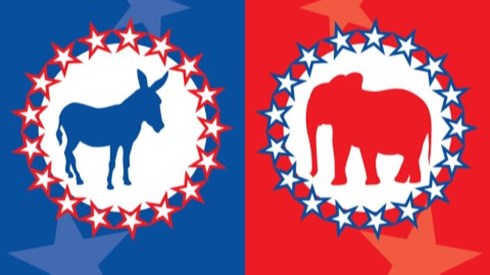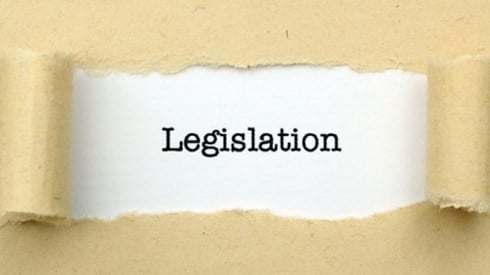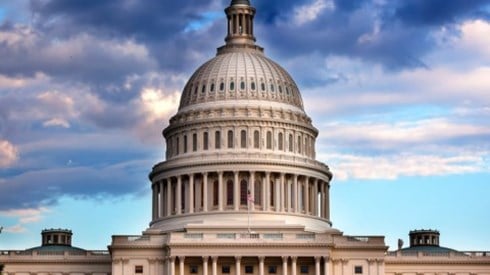Tax, Investments, and PRIA: How the US Election Impacts Captives

November 12, 2020

Uncertainty and political rhetoric may continue to cloud the US presidential election results, but it is possible to begin to assess how the results may impact captive insurers and the wider market over the short to middle term.
In a special bonus episode of the Global Captive Podcast, Richard Cutcher spoke to experts on tax, the investment markets, and legislative activity in Congress to find out how the pending election results could shift the landscape for the captive insurance industry.
Mikhail Raybshteyn, tax partner in the EY Financial Services Organization—Insurance Sector and EY Americas Captive Insurance Services co-leader, said prospective and existing captive owners will be watching closely to see if a Joe Biden administration moves to increase the corporate tax rate up to 28 percent (along with some of the other proposed tax policy changes). The tax rate was lowered from 35 percent to 21 percent in 2017 as part of the Tax Cuts and Jobs Act (TCJA) under President Trump's administration.
"We are working with captive owners right now that are looking to either pull the trigger or not pull the trigger before the year-end to establish a new or enhance an existing captive," Mr. Raybshteyn said.
"Changes in the tax rate will impact the deferred taxes, changes in the overall projection of the effective tax rate, and also the capital the companies will be working with," he said. "These, among other considerations, will be some of the main items the companies will look to as they assess whether to move forward with a captive before the year-end and put something in place or delay until next year or the year after.
"While the benefits of reinsurance and centralization of risk via a captive structure provide significant key benefits for the companies, we cannot ignore the impact of the changes in the tax rate on the overall economics," Mr. Raybshteyn said. "The impact of the potential rate change will be part of the consideration."
Investment Strategy
Captives hold considerable assets under management and, to varying degrees, make use of the investment markets to increase their return on capital. The 2020 Marsh Captive Landscape Report showed that, in their portfolio alone, captives held $391.4 billion in assets under management, including $113 billion in shareholder funds.
Sanjay Joshi, head of fixed income at London & Capital, said the markets had provided positive signs in the immediate aftermath of the election.
"What the investors are saying is two things. First of all, a lot of cash is sitting on the sidelines, waiting to come in. Secondly, that we do know that fiscal policy will be loosened, come what may. But the magnitude, the quantum of the fiscal loosening may not be as large as we thought previously, which is helping the bond market."
Chris Dalziel, executive director at London & Capital, added that captives should not be making dramatic moves regarding their investment decision in response to the election, but that there was a trend of clients wanting to move away from cash.
"One trend that we certainly saw at the beginning of the year was a number of captives that were de-risking. And they have sat on the sidelines since March/April-time when we had the COVID lows," Mr. Dalziel explained.
"Those captives should now be taking another look at their allocations and perhaps thinking about putting their money to work, particularly now that the election has delivered this seemingly 'politics-as-usual' result with a divided Congress.
"For example, we have been working with a number of captives carrying a higher than usual amount of cash on their balance sheet, and we are getting them started with a quasi-cash strategy of low duration, low-risk corporate bonds that really deliver a meaningful return, net of fees, that keeps up with inflation," he said.
Legislative Activity
The legislative picture is less clear as uncertainty remains over the final make-up of the Senate, and whether any COVID relief bill or the Pandemic Risk Insurance Act (PRIA) is passed before the end of the year.
Peter Halprin, a partner at Pasich LLP who represents commercial policyholders in complex insurance coverage matters, said that the pandemic and resulting economic downturn had created a tough environment for insureds and their brokers trying to place coverage, which was only increasing the appeal of captives.
"The only headwind I see is if there is a massive coronavirus stimulus package, and it did start to address the business income losses of the thousands and thousands of plaintiffs in current litigations and the hundreds of thousands of businesses who haven't filed a lawsuit, that might have an impact on all of this," Mr. Halprin said.
"To the extent that there is some kind of relief available that would provide support for those income losses and create some certainty, that would have an effect on everyone's view toward capacity, performance of their investments and would effect that shift toward adopting captive options," he said.
November 12, 2020






